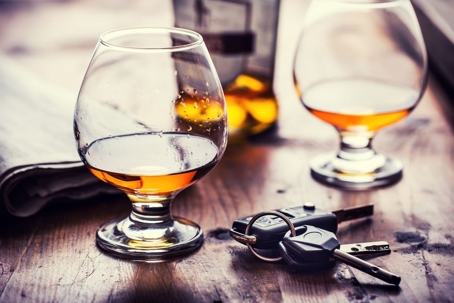Chicago is home to a booming nightlife. In the windy city, it's not uncommon for people to have a drink after work or go out with friends on the weekends. It becomes problematic when it’s time to drive home and everyone is inebriated. In Illinois, if a driver has a blood alcohol concentration of .08 percent or higher, they can be charged with a DUI. Driving under the influence of any substance is dangerous and can lead to injuries and fatalities. Many people do not know that there are various types of DUIs that can each have a different impact on your legal, financial, and personal future.
Misdemeanor DUI
First and second-time DUI offenders who are convicted in Illinois are usually given a class A misdemeanor. The punishment for a misdemeanor DUI includes a one-year maximum sentence in jail and an up to $2,500 fine.
Felony DUI
However, some instances will result in a person being convicted of a felony for a DUI. These usually carry harsher punishments, such as larger fines or extended jail time. Some instances that may turn a DUI into a felony charge include:
Being arrested three times for drinking and driving would be considered a class 2 felony.
Driving under the influence with a minor who is 16 and under who is injured may be considered a class 4 felony, even if it is the driver’s first offense.
Driving with a suspended or revoked license or without insurance may be considered a class 4 felony.
Causing great bodily harm to someone in a drunk driving accident could be considered a class 4 felony.
Accidentally causing someone’s death while drunk driving is enough for a class 2 felony.
Aggravated DUI
An aggravated DUI is considered a felony and is a situation in which the drunk driver was also breaking another law at the same time. Common instances that could turn a DUI into an aggravated DUI include:
Prior DUI violations
Driving while your license was suspended or revoked
Driving without a valid driver’s license
Driving without valid insurance
Accidents resulting in bodily harm
Accidents resulting in bodily harm to a minor under 16
Driving in a school zone
A second DUI while transporting minors under 16
A second DUI after a previous conviction for an alcohol-related homicide offense
Since these types of DUIs are typically more serious, either because they were more dangerous, caused bodily harm, or were a second DUI instance for the driver, they result in a longer sentence of typically 1-3 years. However, in some of these instances, those convicted of aggravated DUIs can be sentenced to 7-12 years.
Underage DUI
Most states, including Illinois, carry a very strict zero-tolerance policy for underage (under 21) drinking and driving. In Illinois, if you’re arrested or receive a traffic violation and there is any trace of alcohol in your system, your license and driving privileges will be immediately suspended for three months. In addition, refusal to submit for alcohol testing will result in a 6-month suspension. If you are tried and convicted of a DUI under the age of 21, you could face:
Up to one year in jail
A fine of up to $2,500
Suspension of driving privileges for at least 2 years
Underage DUI convictions will also go on the individual’s permanent record, so it’s essential to retain an experienced DUI defense attorney so your rights and privileges are protected.
New Penalties Concerning DUIs in Illinois
More recent laws and stricter penalties have been enacted to enforce DUI laws and prevent people from driving under the influence.
Effective on August 11, 2017, the Secretary of State “shall be notified when a person has been convicted of or received a court supervision for operating a snowmobile or watercraft while under the influence of alcohol, drugs or intoxicating compounds.”
Effective on January 1, 2018, there will be enhanced penalties upon conviction for “driving while revoked if the driver is revoked for aggravated DUI that resulted in a death. The prosecution of an aggravated DUI resulting in the death of another person may be commenced at any time.”
If you’re been arrested for a DUI, contact our firm at (888) 473-4058 and we’ll discuss your case and possible defense.

